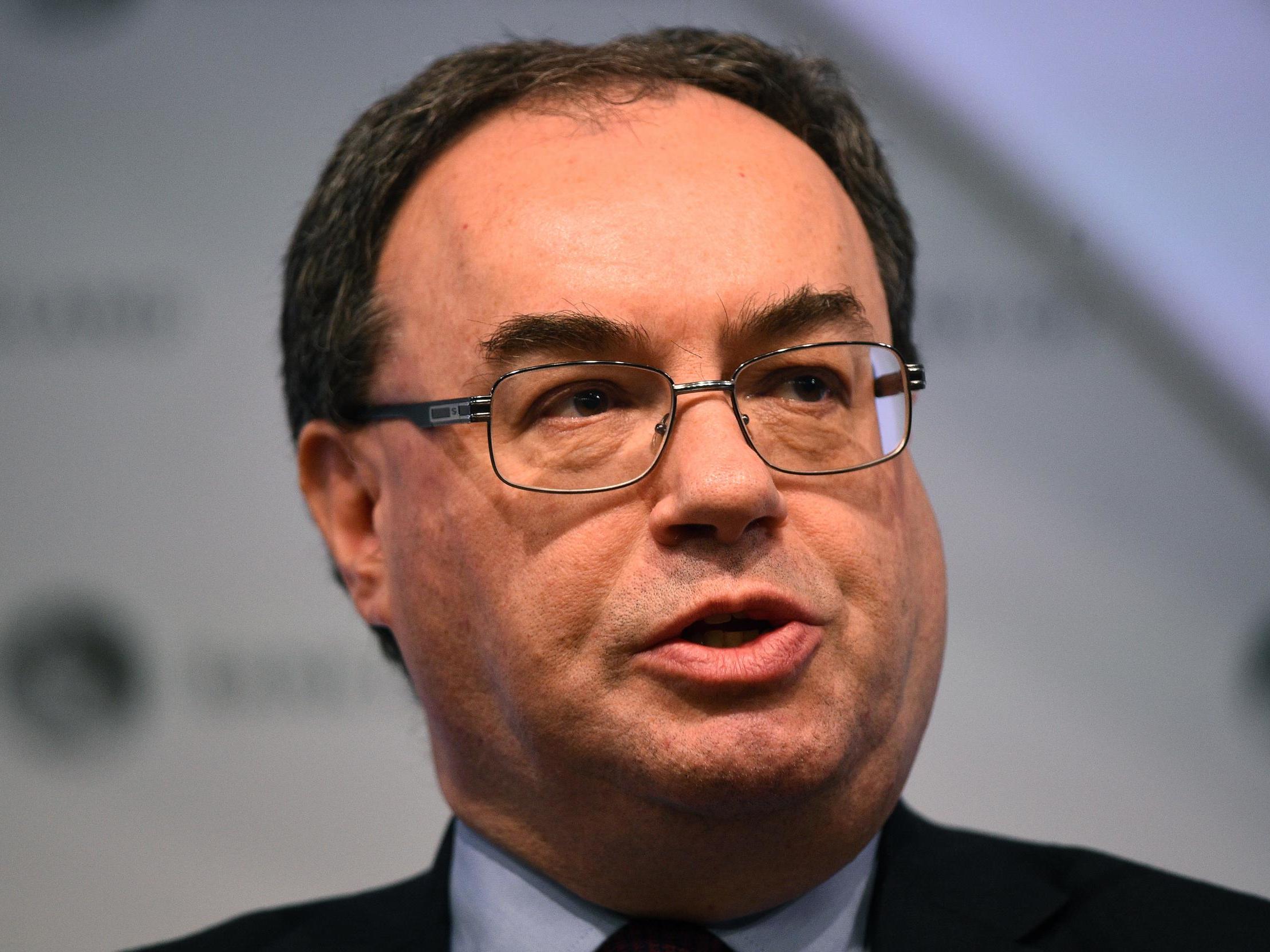New Bank of England governor under fire from MPs over string of scandals on his watch at FCA
Incoming Bank of England governor defends record that has been heavily criticised

Incoming Bank of England governor Andrew Bailey came under heavy fire from MPs on Wednesday over his tenure as head of the Financial Conduct Authority which has been marred by an unprecedented litany of perceived failures of oversight.
MPs on the Treasury Select Committee grilled Mr Bailey on his fitness to lead the Bank, asking probing questions about his current role at the City watchdog.
During his four years in charge, the FCA has been criticised for failing to deal with or prevent a string of scandals. Among the most high-profile are Royal Bank of Scotland’s infamous GRG restructuring unit; defunct investment company London Capital & Finance, which collapsed last year having collected £237m of savers’ money; the £1bn HBOS Reading fraud; and the suspension of Neil Woodford’s funds which left hundreds of thousands of ordinary savers out of pocket.
Conservative MP Steve Baker was Mr Bailey’s most vociferous critic on the committee, asking: “How will you respond to those who say the FCA, under your leadership, seems to have lurched from crisis to crisis, with these dreadful instances where the public have suffered very bad material losses?”
Mr Bailey, who is due to take over from Mark Carney as the Bank’s governor on 16 March, attempted to dismiss assertions he was responsible for the issues faced by the FCA during his reign.
Some of the instances were “very historical things”, he said. “I mean we’re still dealing with them and I’m happy to discuss them but you’ve lumped together a whole load of things of different vintages, frankly.”
Pushed to respond, the FCA chief executive said: “I’m not in any sense shirking from answering questions on this.”
He pointed to what he called the FCA’s “difficult legacy” of problems in the consumer credit sector that he had “inherited”.
He defended his record when Mr Baker questioned his characterisation of the GRG scandal - which saw RBS send small business customers to the wall to boost its own bottom line - as a “historical” issue.
Last year MPs branded a review into GRG, overseen the FCA and defended by Mr Bailey, as a "whitewash" that failed to hold senior RBS executives to account. RBS still faces legal action from a number of the business owners affected.
Mr Bailey pointed to a later review of GRG cases overseen by retired judge Sir William Blackburne as evidence of progress and claimed credit for other successes including one conviction in an insider trading case.
He also deflected questions about the HBOS Reading scandal and his knowledge of allegations by that senior bank executives misled stock markets about its severity ahead of a rights issue.
His comments came after a report published last week accused him of a “toxic cocktail of negligence, incompetence and indifference” at the FCA.
The True and Fair Campaign, set up by businesswoman Gina Miller in 2012, said Mr Bailey had failed to protect consumers and investors
Mr Bailey told the committee that his role at the FCA had been “hellishly tough at times”, adding: “but I don't regret it for a moment.”
On the coronavirus outbreak, he said the Bank of England and the Treasury would need to play a role in allowing finance to be provided to firms who are impacted. Small firms are particularly at risk from disruption caused by the virus, he said.
“It's reasonable to expect we are going to collectively have to supply some supply chain finance in the not too distant future to ensure the shocks from the virus are not damaging to many firms ... in particular to small firms.
“We will have to move very quickly to do that.”
He added: “It's evolving very quickly and in an unprecedented and unexpected fashion.”
Subscribe to Independent Premium to bookmark this article
Want to bookmark your favourite articles and stories to read or reference later? Start your Independent Premium subscription today.

Join our commenting forum
Join thought-provoking conversations, follow other Independent readers and see their replies